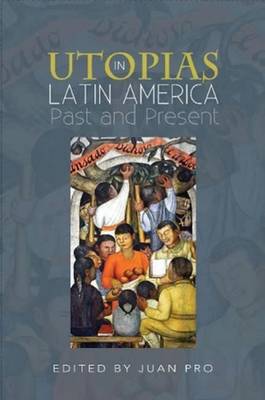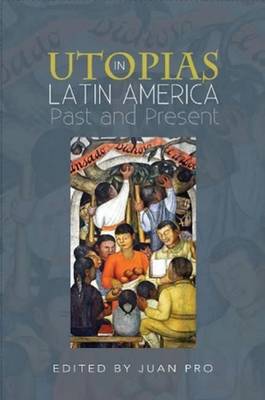
- Retrait gratuit dans votre magasin Club
- 7.000.000 titres dans notre catalogue
- Payer en toute sécurité
- Toujours un magasin près de chez vous
- Retrait gratuit dans votre magasin Club
- 7.000.0000 titres dans notre catalogue
- Payer en toute sécurité
- Toujours un magasin près de chez vous
Description
In an age in which fears about the future predominate (in the form of dystopias, ecological catastrophes and terrifying Sci-Fi scenarios), utopia is reappearing as the bearer of hope for the fate of humanity. Latin America has historically been a fertile ground where utopian projects, movements and experiments could take root and thrive, and this constitutes one of the regions major contributions to world history. Each of the thirteen authors who participate to this collective volume address a particular case or specific aspect of Latin American utopianism from colonial times to the present day. The relationship between utopia and America Latin America in particular has been a constant throughout the ages and helps to clarify both the concept of Utopia and of Latin America. The one cannot be understood without the other, from the book of Thomas More in 1516 to the present. Myths and legends of utopian content already proliferated at the time of the voyages of exploration, spurring on the conquistadors, while the knowledge gap about lands awaiting discovery was filled with stories about utopias. The America that the Spanish and Portuguese discovered became, from the sixteenth century onwards, a space in which it was possible to imagine the widest variety of forms of human coexistence. Utopias in Latin America reconsiders the sense and understanding of utopias in various historical frames: the discovery of indigenous cultures and their natural environments; the foundation of new towns and cities in a vast colonial territory considered as empty space in which it was possible to start afresh; the experimental communities of nineteenth-century utopian socialists and European exiled intellectuals; and the innovative formulae that attempts to get beyond twentieth-century capitalism.
Spécifications
Parties prenantes
- Auteur(s) :
- Editeur:
Contenu
- Nombre de pages :
- 328
- Langue:
- Anglais
- Collection :
Caractéristiques
- EAN:
- 9781845199821
- Date de parution :
- 01-02-19
- Format:
- Livre broché
- Format numérique:
- Trade paperback (VS)
- Dimensions :
- 170 mm x 244 mm
- Poids :
- 498 g

Les avis
Nous publions uniquement les avis qui respectent les conditions requises. Consultez nos conditions pour les avis.






